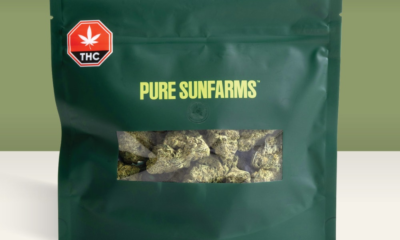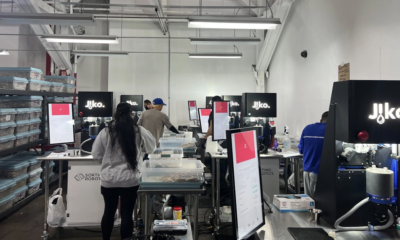The attractiveness of the intoxicating hemp market is becoming harder for regulated cannabis companies to ignore. Fewer regulations and less oversight make the profits better and easier than grinding it out in the restrictive cannabis industry.
Organigram Holdings (Nasdaq: OGI) is one of the latest big-name companies to focus on building up its arsenal of hemp products. Last week, the company announced it was spending $90 million to buy another Canadian company, Motif, an extractor known for its vapes and infused pre-rolls in the traditional cannabis market.
However, in the announcement, Organigram also highlighted that Motif was also working with more innovative and novel products that use minor cannabinoids such as CBN, CBG and CBC, without specifying if they are derived from hemp or marijuana,
The company already has a wellness brand called Monjour, which predominantly provides consumers with products without THC. In a regulatory filing, Organigram noted that Monjour was the leading pure CBD-infused gummy brand in the third quarter of 2024, based on data from BDSA, Hifyre and Headset, as well as internal modelling.
Earlier this year, the company also invested $2 million in Open Book Extracts (OBX), a hemp-derived ingredients and product manufacturer based in North Carolina. The investment was made through a convertible note and is intended to leverage the expanding legal hemp derivatives market.
Organigram said at the time, “Through its investment in OBX, Organigram will gain valuable insights into the U.S. (hemp) market and its consumers. In time, Organigram plans to work with OBX to explore potential product launches in the U.S.”
Last year, Organigram made an $8 million investment into Phylos Biosciences, with particular interest in delta 9-tetrahydrocannabivarin, or THCV, products. THCV is a minor cannabinoid that has been shown to provide consumers with an energizing and focused effect, low to no cognitive impairment or intoxication compared to THC, and potential as an appetite suppressant.
But Organigram started looking at cannabis alternatives long before that deal. In 2018, it began investing in Hyasynth, which specializes in biosynthesizing cannabinoids using yeast fermentation. This approach focuses on producing cannabinoids at scale without traditional cultivation. To date, Organigram has invested almost $10 million into the company.
Hyasynth said in 2021 that its patent portfolio includes hundreds of novel enzymes and processes that have allowed it to produce over 20 rare cannabinoids. The company said at the time, “With growing clinical, consumer, and commercial awareness of rare cannabinoids such as CBG, CBN, THCV, CBDV, and CBDO, the ability to produce these compounds will drive growth and allow for product differentiation in the multibillion dollar cannabinoid market.”
Organigram is clearly still committed to regulated cannabis, but the company looks like it wants to cover all bases in the future. If regulated cannabis doesn’t get any legislative relief in the U.S., then maybe hemp or rather minor cannabinoids may be the call to make.

 California Cannabis Updates1 year ago
California Cannabis Updates1 year ago
 Breaking News1 year ago
Breaking News1 year ago
 best list1 year ago
best list1 year ago
 Business1 year ago
Business1 year ago
 Business1 year ago
Business1 year ago
 cbd1 year ago
cbd1 year ago
 Bay Smokes1 year ago
Bay Smokes1 year ago
 autoflower seeds1 year ago
autoflower seeds1 year ago
















































